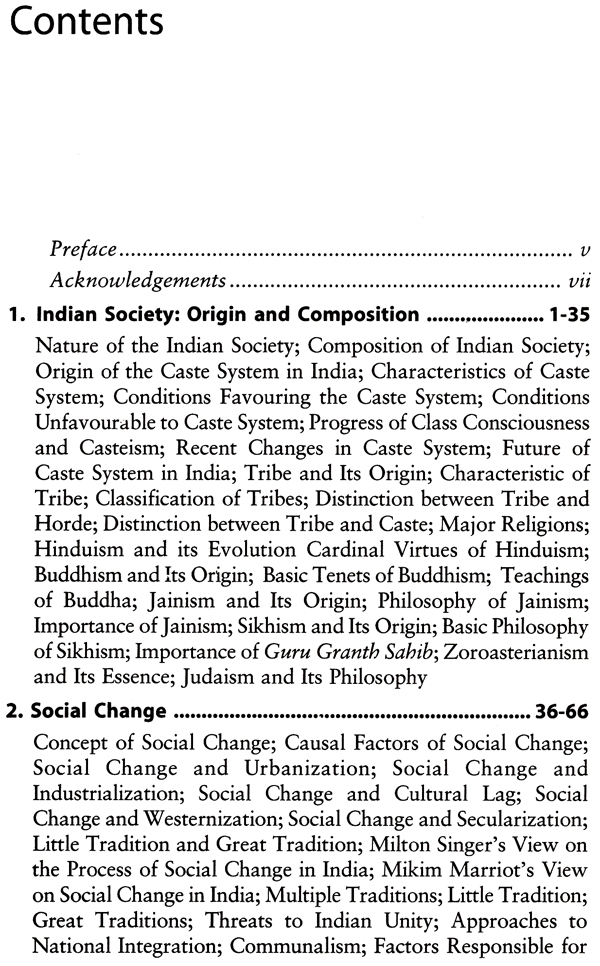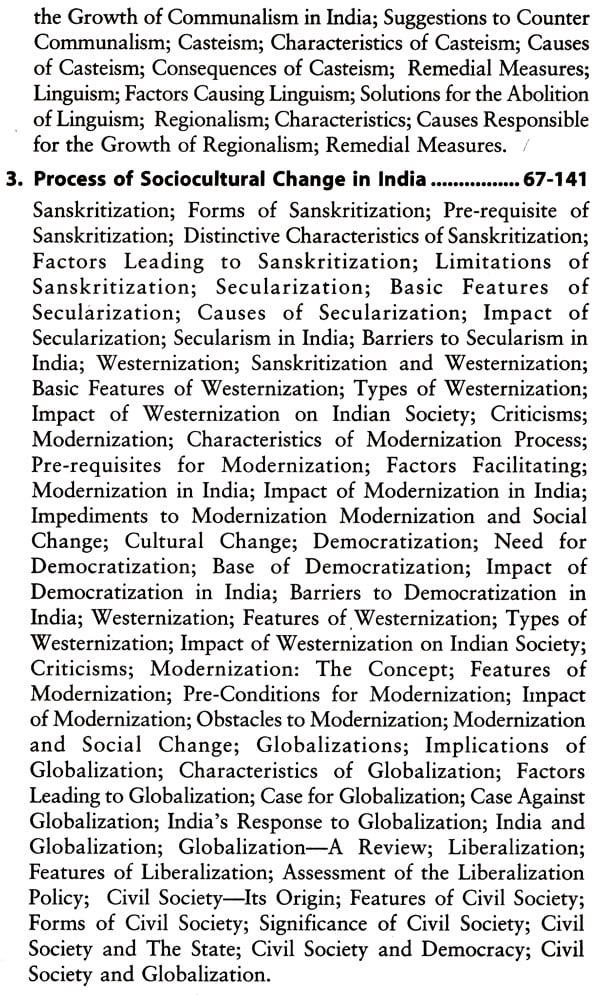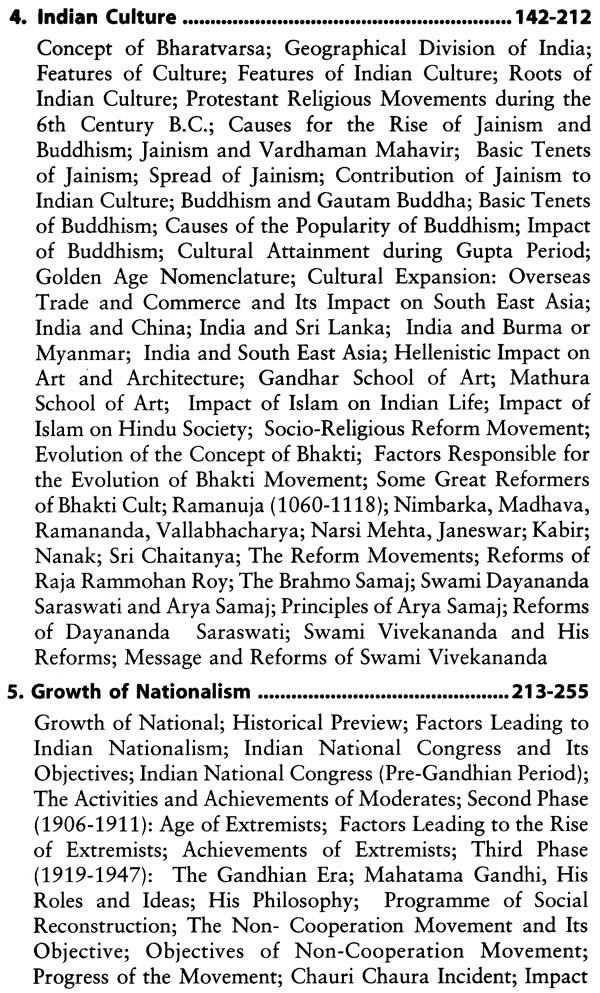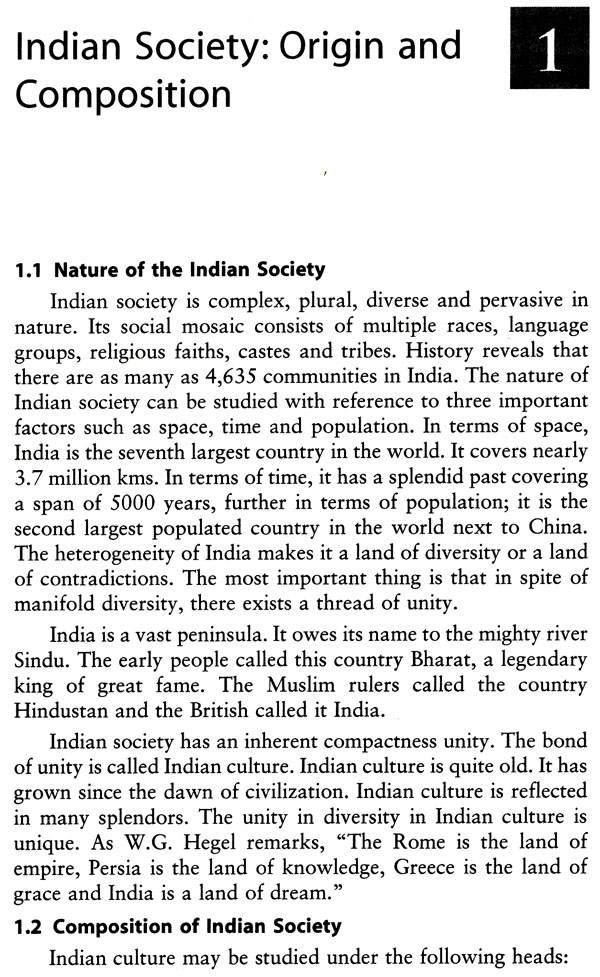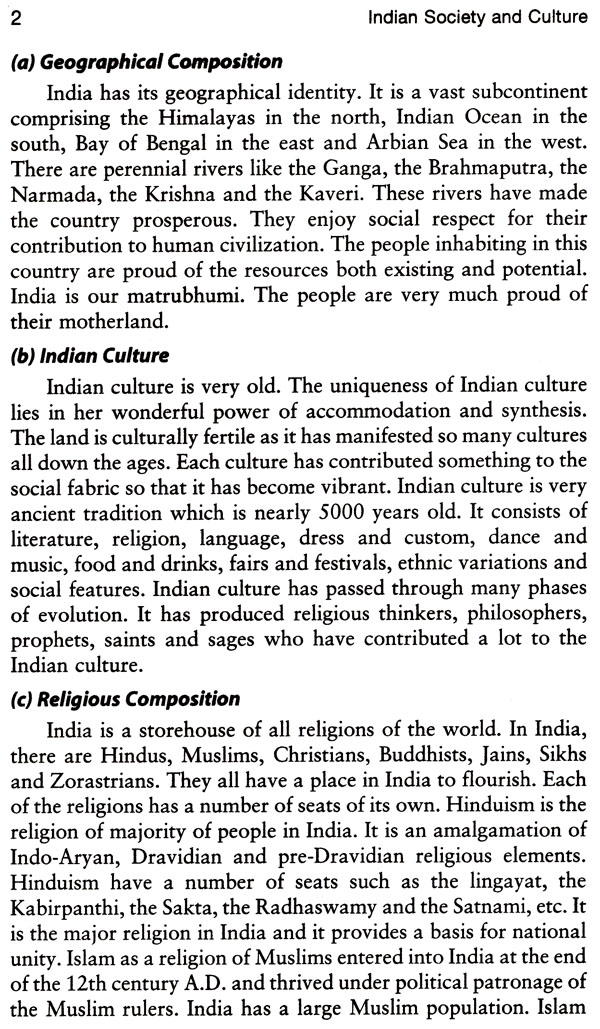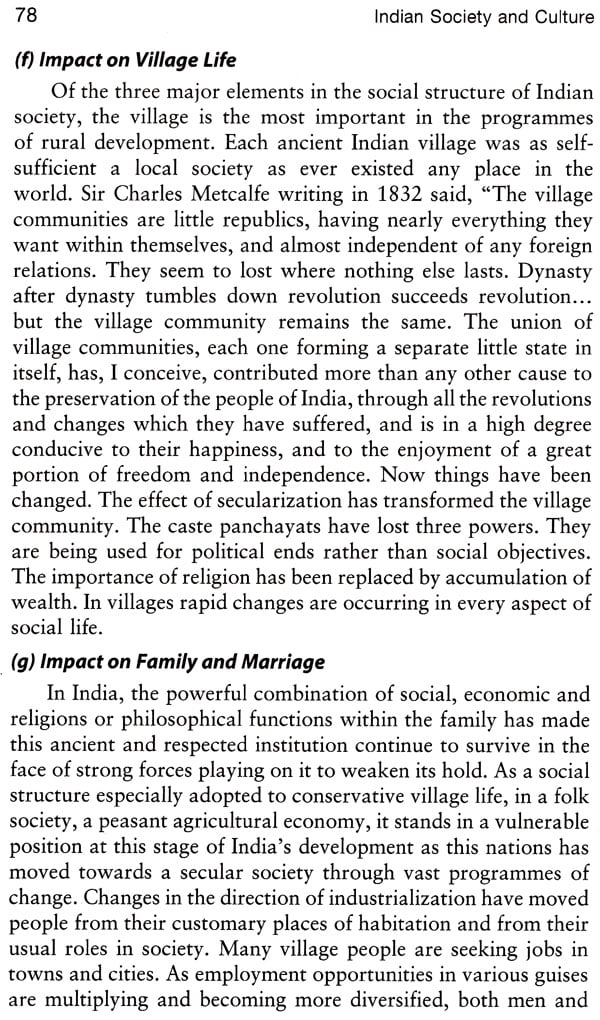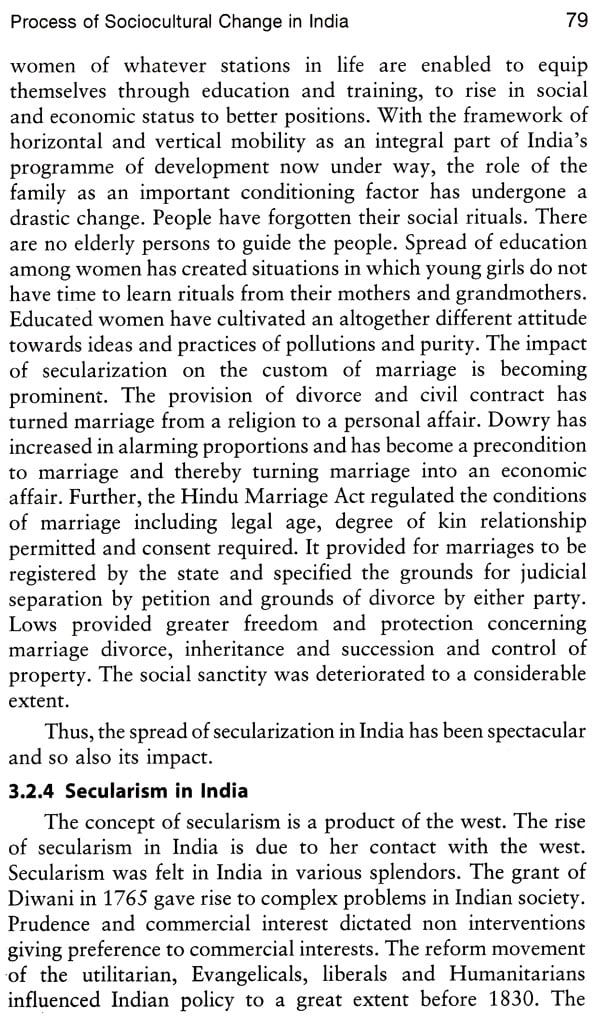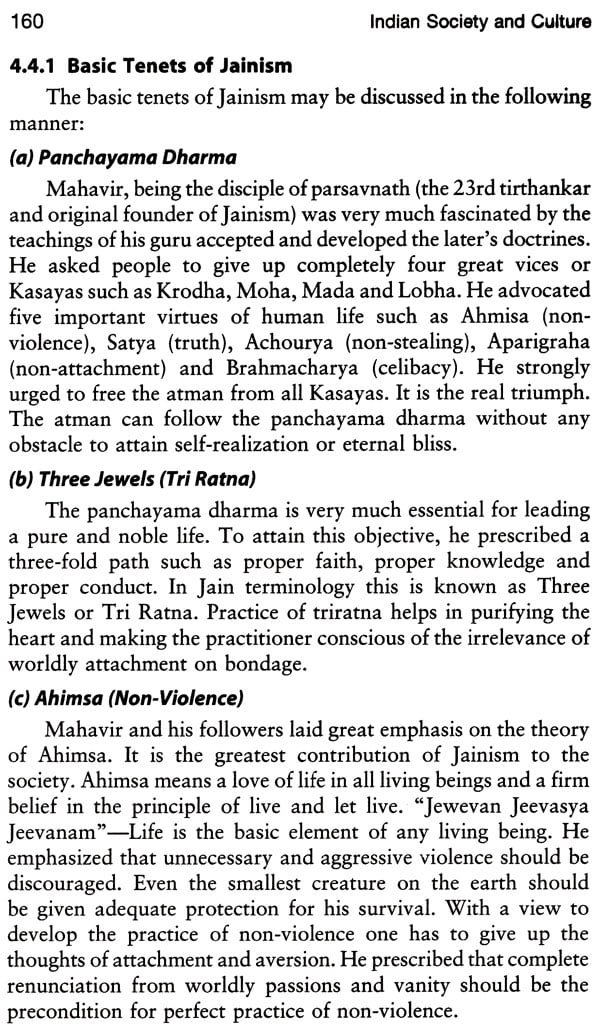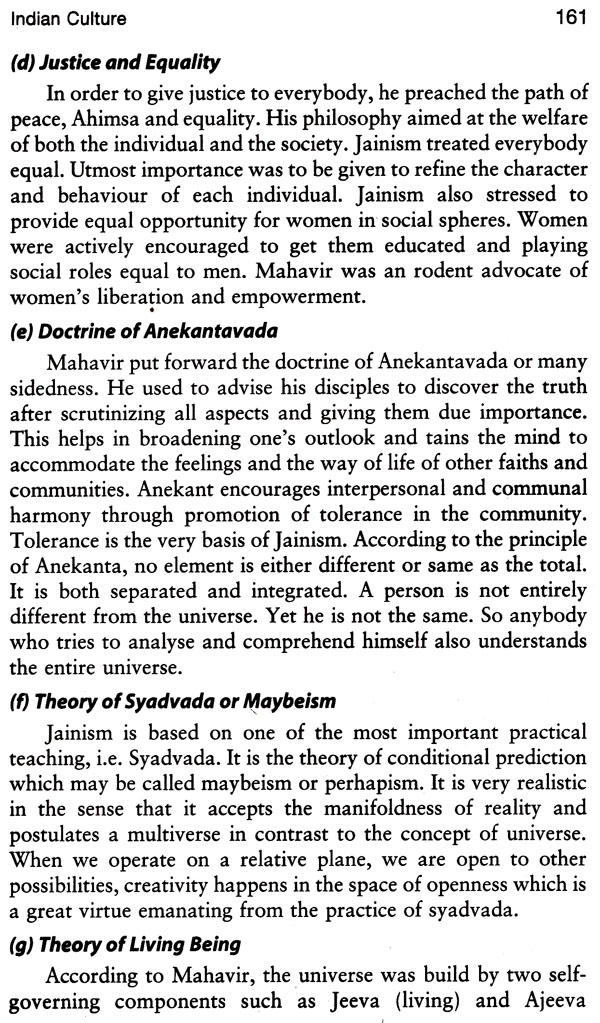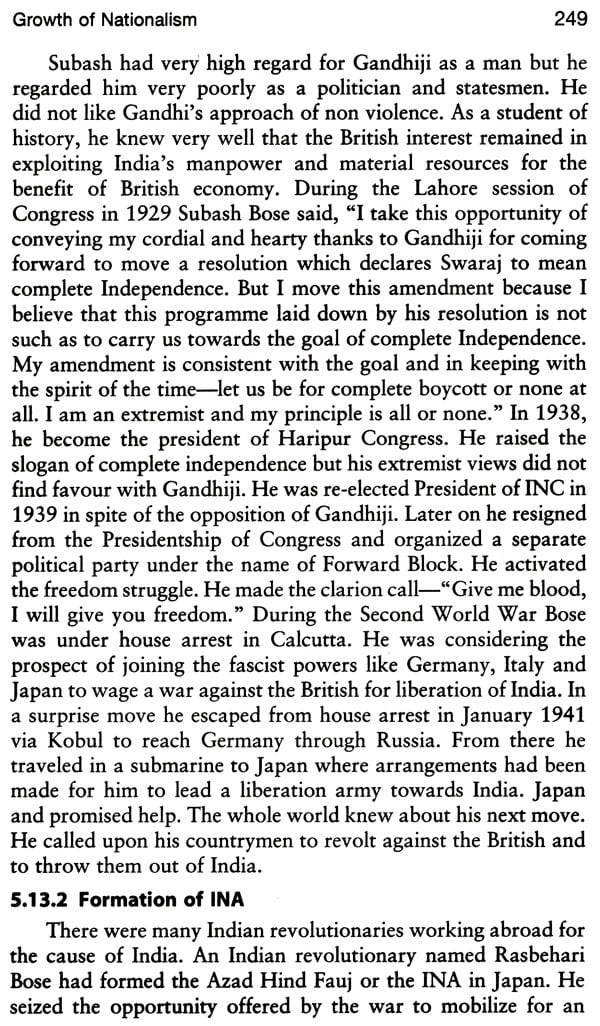
Indian Society and Culture
Book Specification
| Item Code: | NAS105 |
| Author: | Padma Charan Dhal, Kalyani Jena and Nalini Prava Mohanty |
| Publisher: | Atlantic Publishers and Distributors Pvt. Ltd. |
| Language: | English |
| Edition: | 2013 |
| ISBN: | 9788726918317 |
| Pages: | 272 |
| Cover: | PAPERBACK |
| Other Details | 8.50 X 5.50 inch |
| Weight | 320 gm |
Book Description
India at present is on the threshold of socio-economic revolution and each sector is developing at a rapid pace whereby the society and culture in the country are witnessing a sea change. Indian society and culture have influenced the societies and cultures of different countries in the world. The West is looking towards India for guidance not only for spiritual values, but also for social ideologies and political systems like democracy, and economic cooperation.
The society and culture in India may exhibit diverse and pervasive characteristics, still our country has maintained secularism and integrity.The unique features of Indian way of life have attracted the attention of scholars, academicians and researchers since long. The book is an attempt to acquaint the readers with the society and culture in India so that they have a sound idea about its features.
This subject matter of the book has been organized into five chapters, Chapter 1 describes the origin and composition of Indian society. Chapter 2 deals with social change witnessed in India over the years. Chapter 3 takes up the process of socio-culture change in India. Chapter 4 throws light on different aspects of Indian culture, including religious movements, social reform, art and architecture. Chapter 5 focuses on growth of nationalism in India.
It will appeal to the readers interested in knowing about various aspects of Indian society and culture.
Padma Charan Dhal graduated from Govt. College, Rourkela, Samabalpur University with 1st Class Honours in Economics with distinction. He obtained his postgraduation degree in Analytical & Applied Economics from Utkal University. Later on he obtained his Law degree and Ph.D. from the same university. He is the recipient of ICSSR Fellowship and National Award for Freelance Journalism and Bharat Gaurav Samman for his academic excellence.
He is associated with teaching profession since 1979. He has published 85 research papers in professional journals of repute and has to his credit the following books-A Textbook of Cooperative Management; Fundamentals of Office Management; Business Organisation and Management; Democracy in India: Constraints and Opportunities; Indian Polity: Structure and Process; Population Economics; and Environmental Economics. His areas of specialization include Banking and Finance, Gender Studies and Sustainable Economic Development. He has successfully completed several projects funded by U.G.C. and ICSSR. He is guiding research scholars of some universities in Odisha.
Kalyani Jena is postgraduate in Political Science from Utkal University. She is associated with the teaching profession since 1980. At present she is working for socially disadvantaged groups. She is a social activist and freelance journalist.
Nalini Prava Mohanty is postgraduate in Economics from Ravenshaw College, Cuttack, Odisha. She has served in different degree colleges in the state. At present she is engaged in active research in the Institute of Economics Studies, Bhubaneswar, Odisha.
Nowadays India is at a threshold of socio-economic revolution whereby the country's prosperity and power are on high growth trajectories. The implications of this are more than obvious, as each and every sector is developing at such a rapid pace that, change is the only thing that seems to be permanent. In such a scenario, the society and culture in India are witnessing a sea change. Needless to say that Indian society and culture have influenced the societies and cultures of different countries in the world. The society and culture in India may exhibit diverse and pervasive characteristics, still our country has maintained secularism and integrity. The unique features of Indian way of life have attracted the attention of scholars, academicians and researches since long. Hence, it is quite desirable to have a glance at the Indian society and culture and note its various facets and aspects. With the passage of time Indian society and culture have undergone metamorphic changes with the basic tenets remaining constant. The present book entitled Indian Society and Culture is attempt to acquaint the readers with the society and culture in India so that they have a sound idea about its typicalities.
Encouraged by the widespread response and the warm welcome given to my previous works by the student community as well as teacher fraternity of different universities and institutions of higher learning with which I am associated, I have the pleasure in presenting this book along with the active support and cooperation of my co-authors Mrs. Kalyani Jena and Mrs. Nalini Prava Mohanty. I owe my deep sense of gratitude and indebtedness to them.
This book has been organized into five chapters, Chapter 1 describes the origin and composition of Indian society. Chapter 2 deals with social change witnessed in India over the years. Chapter 3 takes up the process of socioculture change in India. Chapter 4 throws light on different aspects of Indian culture, including religious movements, social reform, art and architecture. Chapter 5 focuses on growth of nationalism in India. We hope that it will appeal to the readers interested in knowing about various aspects of Indian society and culture.
No writer of a book of this dimension can isolate himself. We owe our intellectual debts to many and are deeply indebated to the authors of various books on this subject both Indian and foreign which we have freely drawn upon. Critical comments and suggestions for the improvement of the book are most welcome.
**Contents and Sample Pages**
